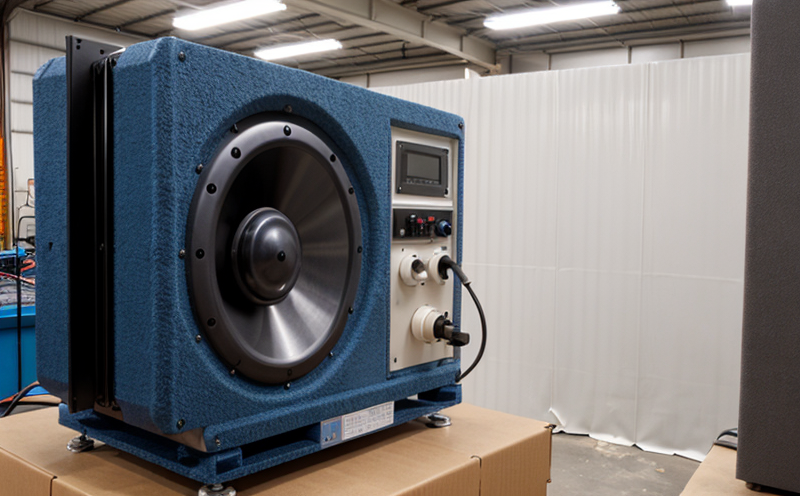ISO 11201 Vacuum Sealer Machine Noise Testing
The ISO 11201 standard is pivotal in ensuring that vacuum sealer machines meet stringent noise emission requirements, which are critical for consumer safety and comfort. This service focuses on testing the noise levels of vacuum sealers to ensure compliance with international standards and customer expectations. Vacuum sealers are commonly used in food packaging applications where they help extend shelf life by removing air from containers, thus preventing spoilage.
Compliance with ISO 11201 is not only important for regulatory adherence but also enhances brand reputation and consumer trust. Noise levels above the permitted limits can cause discomfort or even health issues for users, especially in environments where prolonged exposure to high noise levels is likely. Therefore, ensuring that vacuum sealers meet the specified noise emission criteria helps manufacturers maintain a competitive edge in the market.
The testing process involves several key steps: initial calibration of the acoustic measurement equipment, setting up the test environment according to ISO 11201 specifications, placing the vacuum sealer on a vibration isolation platform, and conducting multiple measurements at various operational conditions. These conditions include different speeds, sealing cycles, and packaging materials.
The test results are compared against the specified limits in ISO 11201. If the noise levels exceed these limits, corrective actions must be taken to bring them into compliance. This may involve adjusting the machine’s design or modifying its operational parameters. Once the vacuum sealer passes all tests, a comprehensive report is generated detailing the test setup, results, and conclusions.
Consumer impact and satisfaction are significantly enhanced when products like vacuum sealers meet noise emission standards. Users benefit from quieter operations that reduce stress and improve overall quality of life. In addition to personal comfort, compliance with ISO 11201 also contributes to environmental sustainability by minimizing the noise pollution generated during product use.
From a competitive advantage perspective, adhering to such stringent standards sets companies apart in terms of product reliability and user safety. This can lead to increased market share and customer loyalty. Furthermore, manufacturers who comply with ISO 11201 are better positioned to meet evolving regulatory requirements and consumer expectations, ensuring long-term success.
Customer Impact and Satisfaction
- Enhanced User Comfort: By ensuring that vacuum sealers meet ISO 11201 standards, users enjoy quieter operations, which reduce stress and improve overall quality of life.
- Increased Brand Loyalty: Compliance with international standards fosters trust among consumers, leading to higher customer satisfaction and loyalty.
User feedback plays a crucial role in the continuous improvement process. By addressing noise-related concerns promptly, manufacturers can enhance user experience and maintain their competitive edge.
Competitive Advantage and Market Impact
- Regulatory Compliance: Adhering to ISO 11201 ensures that vacuum sealers meet stringent noise emission standards, which is essential for regulatory compliance. This helps manufacturers avoid potential legal issues and fines.
- Innovation and Differentiation: By exceeding the basic requirements set by ISO 11201, companies can differentiate their products in the market. This innovation can lead to higher sales volumes and greater market share.
Ultimately, compliance with ISO 11201 noise testing standards contributes to long-term success by ensuring product reliability and user safety. It also positions manufacturers as leaders in the industry, fostering a positive reputation among stakeholders.





